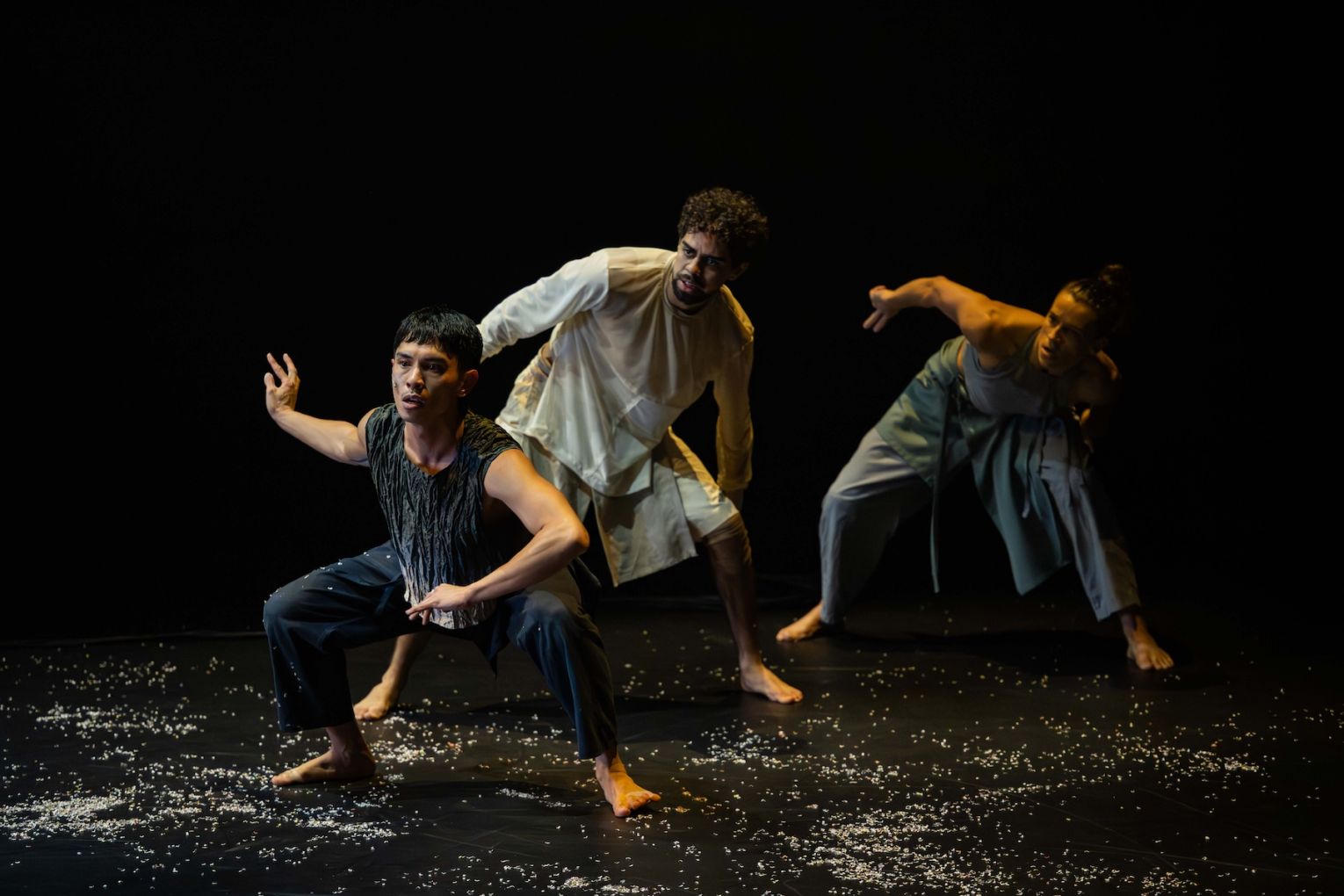Festivals
ReadAdelaide Festival 2026 revealed: Britpop legends and a Squid Game star
A free concert from Jarvis Cocker’s Pulp, a South Korean-inspired take on a Chekhov classic, and the return of a controversial former festival director lead the 2026 Adelaide Festival program.

Dance
ReadOzAsia Festival review: Two Blood
Australian Dance Theatre’s process of interdisciplinary collaboration drives this tale of entwined bodies and bloodlines across First Nations and migrant communities.

Dance
ReadOzAsia Festival review: Searching Blue
Visceral, elemental, and tenderly human, T.H.E Dance Company entranced OzAsia audiences with a bid for connection through touch.

























